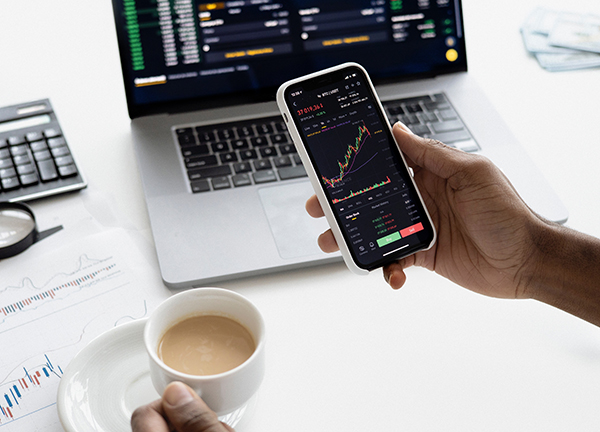HAVE YOU been thinking about getting involved in forex trading? The new year is an excellent time to begin learning about the opportunities available
HAVE YOU been thinking about getting involved in forex trading? The new year is an excellent time to begin learning about the opportunities available to first-time, new, and experienced traders. One of the best things about foreign exchange is that the markets are always active and thrive in all kinds of economic situations. What’s the best way to get started? Especially for those brand-new to the subject, it’s essential to learn the basics, namely how to set up an account and begin trading currencies in your spare time.
Most people use a demo account and practice all their new skills on a simulator to get the hang of placing orders. So, what is the market all about, how should you begin, and what are the most important pros and cons to be aware of? Here’s a guide that can get you oriented and headed in the right direction.
What’s Forex All About?

The global foreign exchange market, or forex, is the single place where millions of people exchange dozens of currencies from the many national governments. Because the value of national forms of money (i.e., fiat currency) changes constantly, there are always differences in value between them. For example, the euro and the yen fluctuate in relation to each other on a constant basis. Traders speculate on which pairs will change in value and by how much. All transactions take place online, in cyberspace because there isn’t any physical location for doing business. This electronic arrangement means speed is one of the central characteristics of buying and selling.
People purchase currency pairs, or one nation’s money valued in terms of another. You might choose to buy USD/JPY, for example, in which the quote currency is the dollar and the base is the Japanese yen. If you buy this pair, you’re essentially going long and expecting the US dollar to rise in value, or strengthen. Keep in mind that there can be multiple reasons for one nation’s currency to strengthen against another. That’s where traders come into the picture. Your job as a foreign exchange participant is to determine which pair to buy, based on which ones you believe will gain in value relative to others.
Getting Started
The first step is to set up an account with a reputable broker who supports this kind of activity. Then, spend several hours reviewing the terminology at the brokerage site’s knowledge base, decide which currencies you’ll be working with, and develop a strategy just as you would if you traded stocks, bonds, options, precious metals, or anything else. The final step is setting your personal risk tolerance. You can choose to make large or small trades, and you might decide to use leverage on any given transaction as well. It’s usually smart to start out small and conservative and then make changes as you gain confidence and skill.
How to Use a Demo Account
Choose a brokerage platform that allows for the use of practice accounts in which you buy and sell with non-real funds just to learn the ropes. When you practice on a forex demo account like the one on AvaTrade, you get the chance to understand all the terminology, techniques, and essential data before putting your own money on the line. Demo accounts will display your profit-and-loss statement in real time even though you’re using fictitious money. Most who are new to the foreign exchange markets choose to work with a demo account for at least a week, sometimes longer, before they begin live buying and selling of currency pairs.
Advantages and Disadvantages
Anyone involved in the fast-paced, exciting world of foreign exchange trading realizes that, as is the case with all other types of trading activity, there are pros and cons. At the top of the list for the pros is the accessibility of the markets. Almost anyone can get set up with a broker of their choice and begin buying and selling currency pairs in a matter of minutes.
Other advantages include the chance for making fast profits, the chance to use leverage, the ability to employ any of dozens of strategies, the high liquidity of your assets, very low commissions and fees at the top brokerage firms, the use of automated accounts if you want them, and many more. What about the downside? There’s not as much protection from regulating authorities as in the traditional stock market, which is why people usually start slow and avoid over-use of leverage. Plus, some of the currency markets can be quite volatile at times and might present too much risk for new traders.
www.voice-online.co.uk
